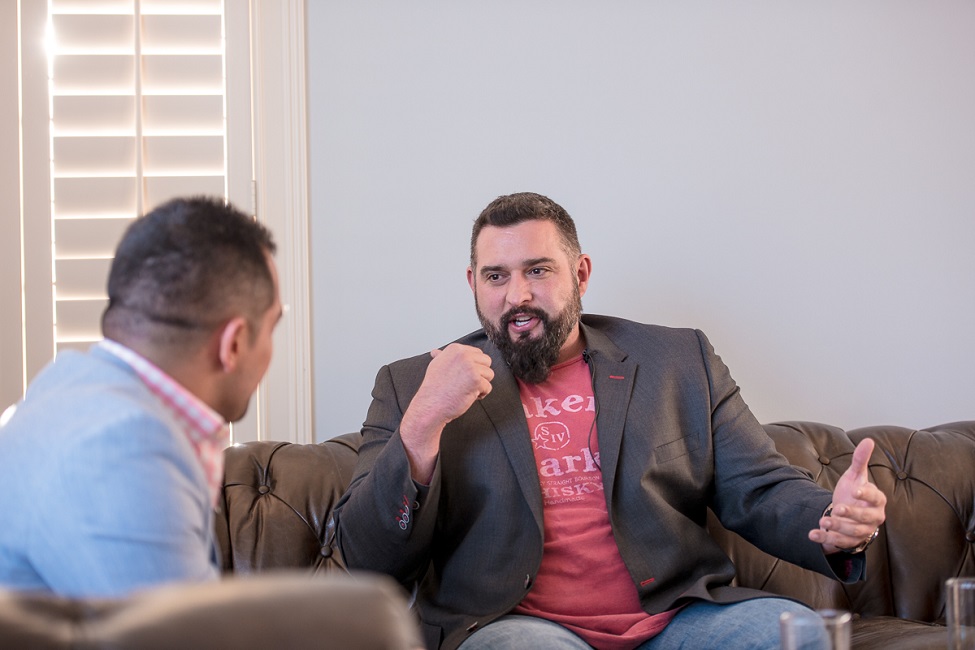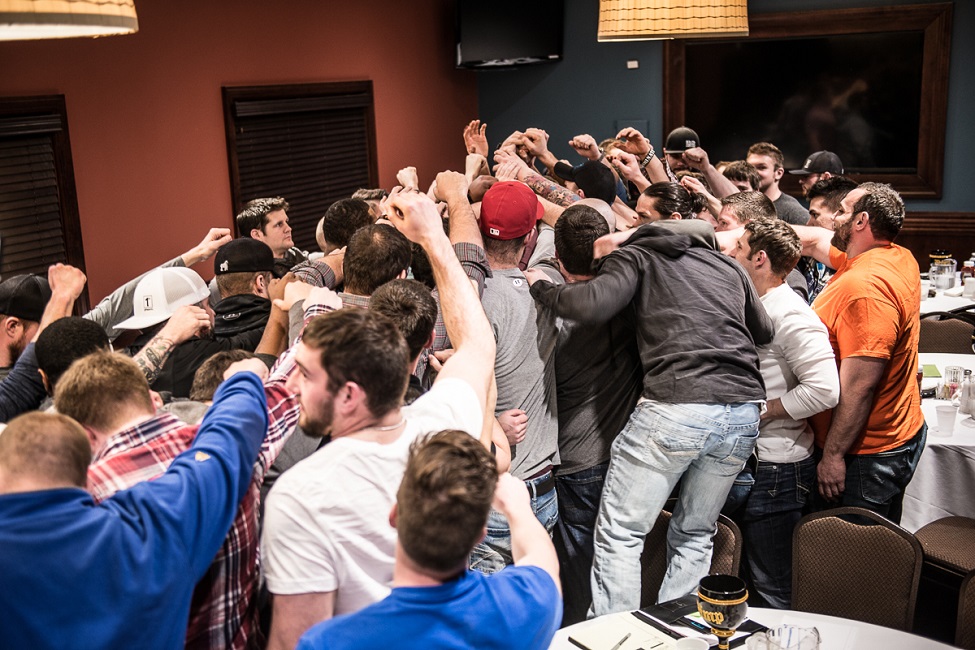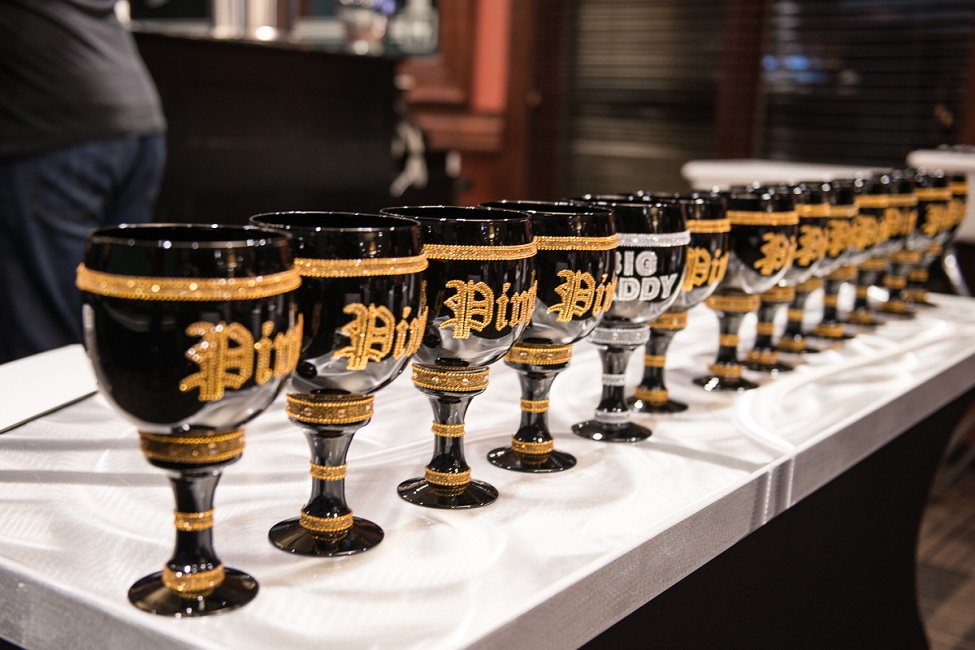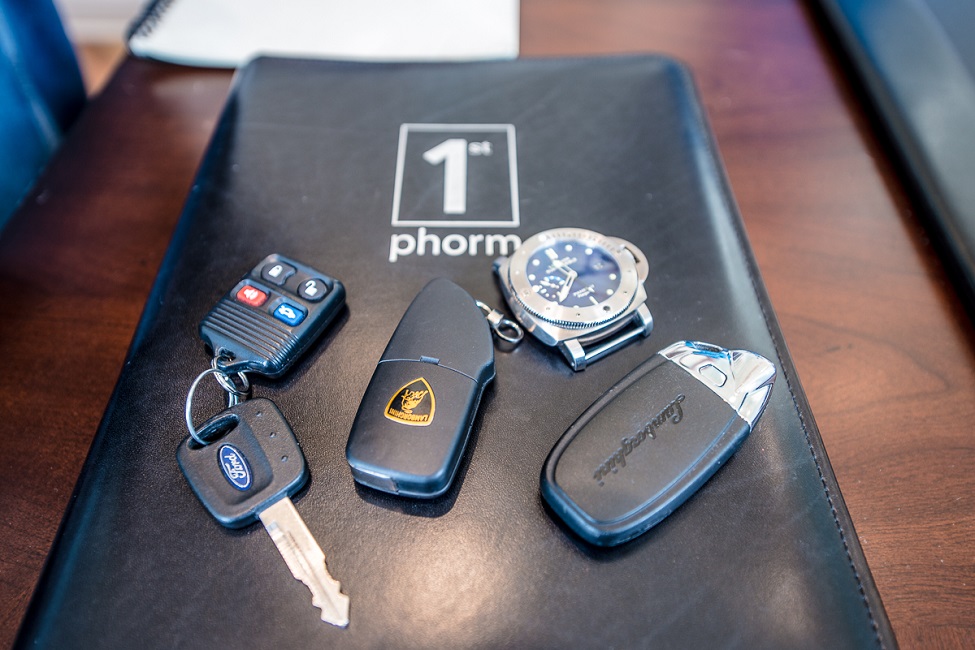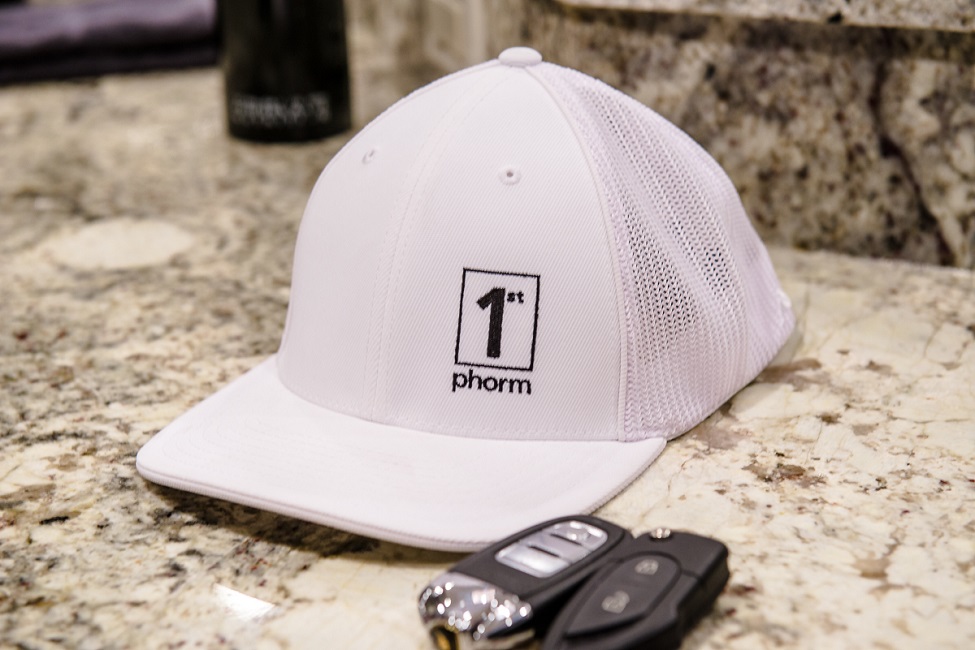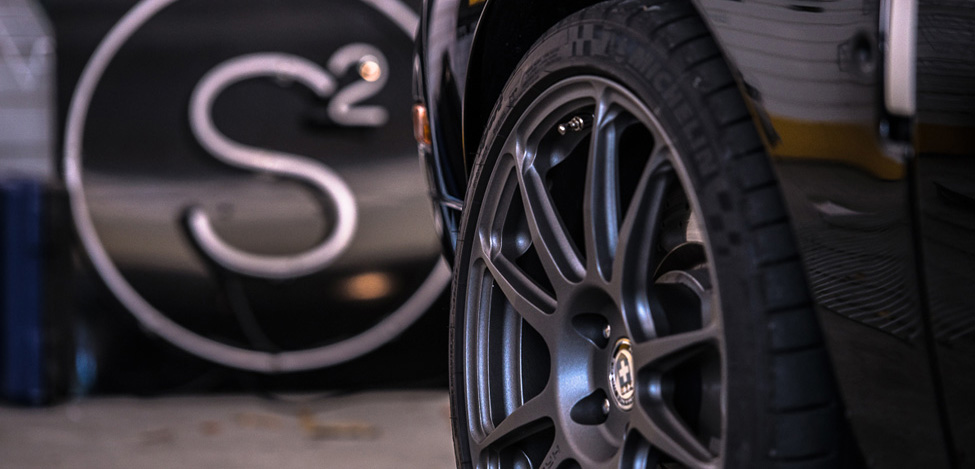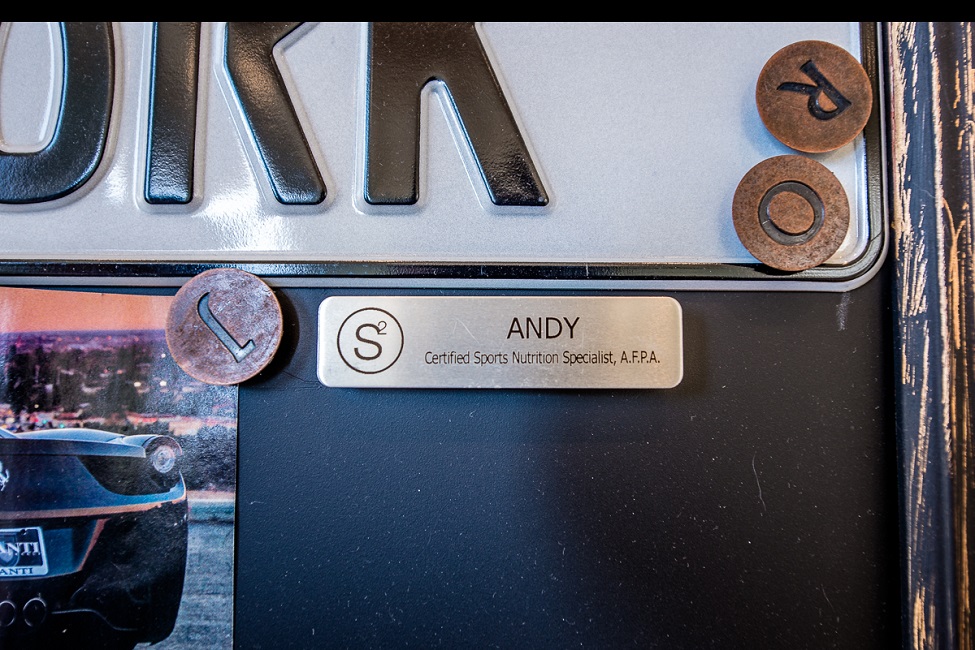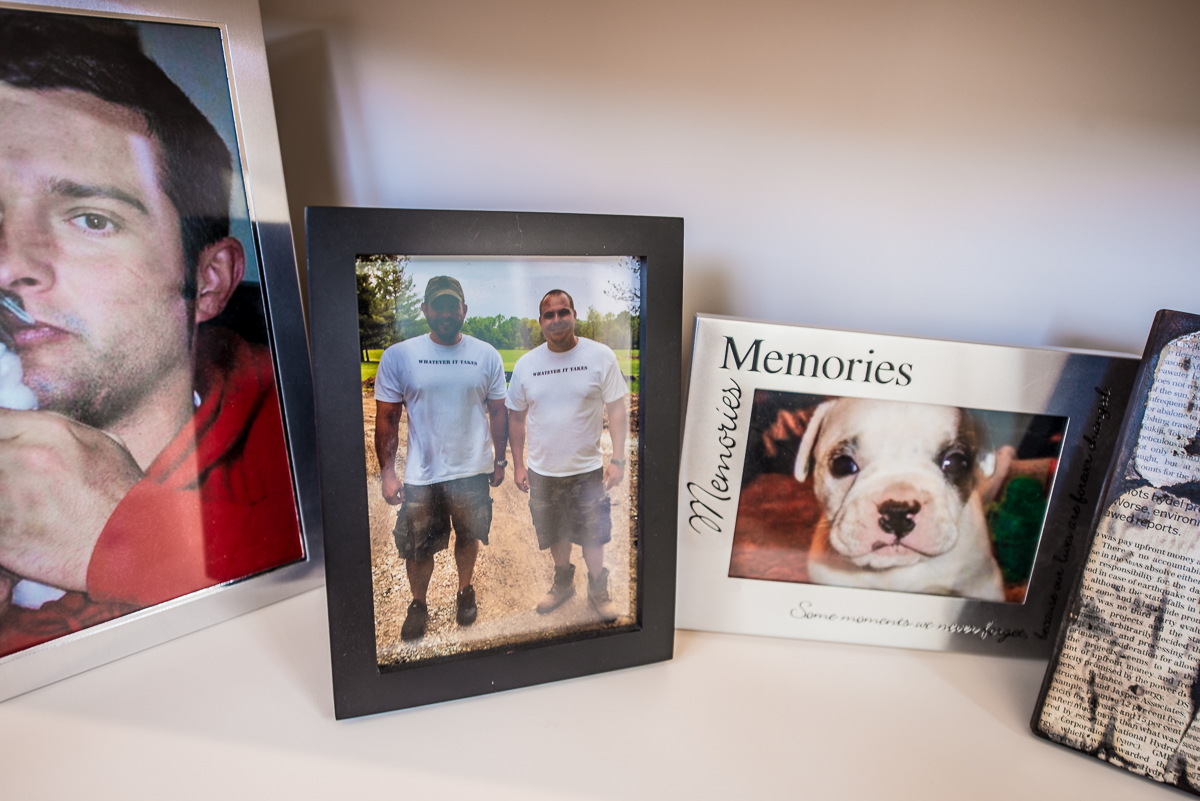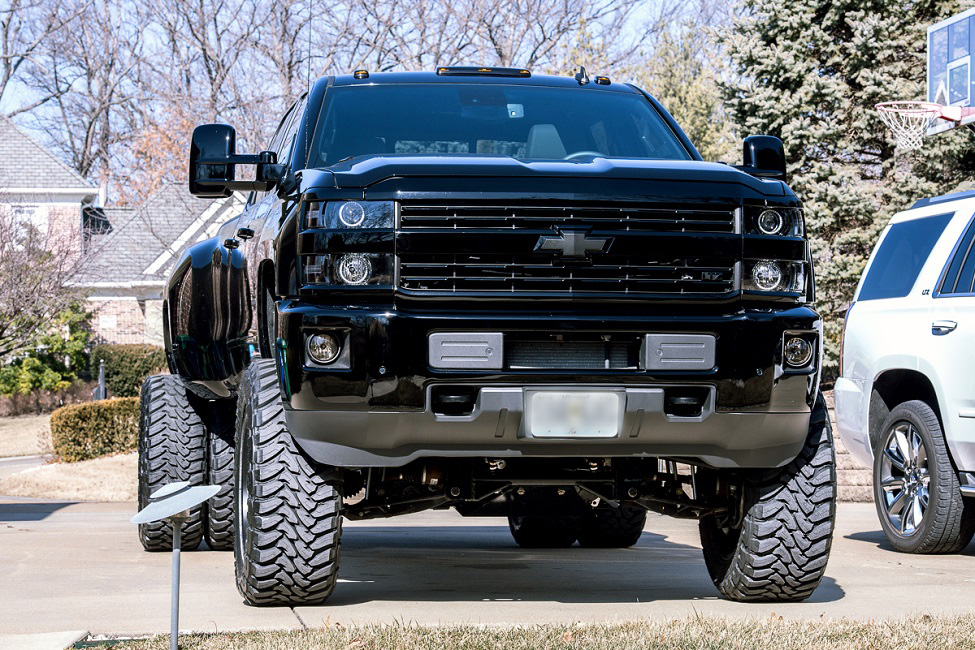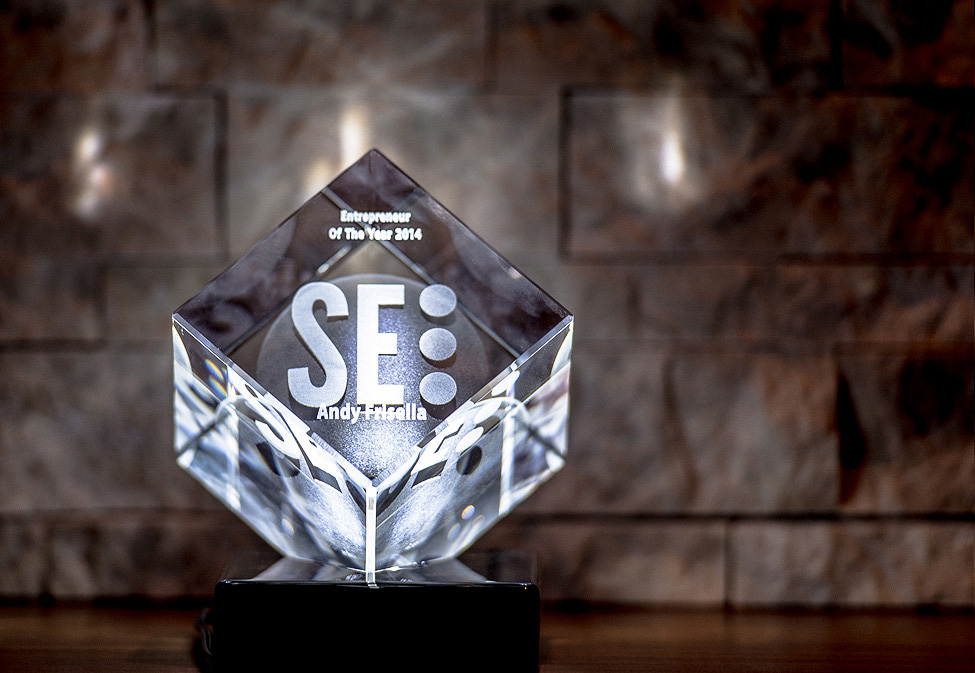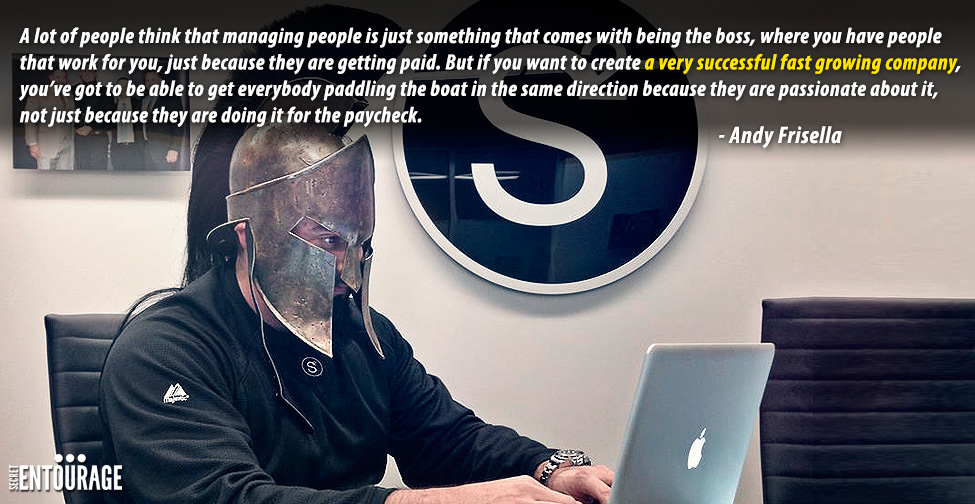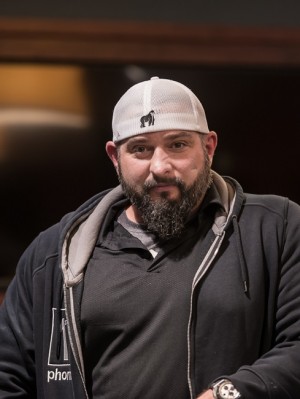
Contact Info
- Address:
- 1709 S Campbell Ave, Springfield, MO 65807
- Phone:
- (417) 864-6799
- Homepage:
- http://www.supplementsuperstores.com/
- Home » Health & Medicine » Fitness Supplement
-

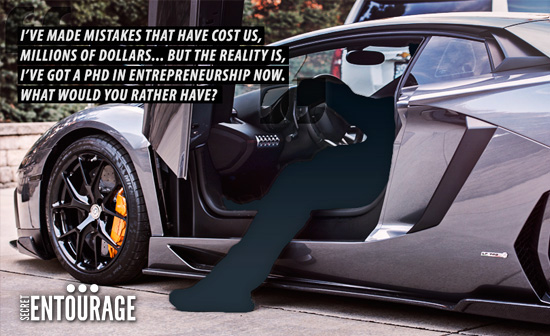 While not everyone is comfortable telling their entrepreneurial story, others like Andy Frisella strongly believe you have an obligation to inspire the next generation. If you’ve followed Andy on social media, then you’d know his humble beginnings have inspired hundreds of thousands of followers, regardless if you are into fitness or business.
While not everyone is comfortable telling their entrepreneurial story, others like Andy Frisella strongly believe you have an obligation to inspire the next generation. If you’ve followed Andy on social media, then you’d know his humble beginnings have inspired hundreds of thousands of followers, regardless if you are into fitness or business.
Over a decade ago, Andy used his life savings and founded his first supplement store with no prior experience. Success was not easy and it wasn’t until he had launched his second and third stores when he started getting paid. This has transitioned to a brand of supplements that now serves hundreds of professional athletes and thousands of brand ambassadors worldwide.
Tell us how you got inspired to become an entrepreneur…
I’ve always been entrepreneurial minded.
When I was a kid I sold baseball cards, lemonade, snow cones, light bulbs, etc, door to door. Basically anything I could do to try and make money. It’s in my blood. It took me a while to get serious and I can pinpoint that to the exact day/event when that occurred.
13 years ago, I was walking home from a bar with a neighbor of mine. She’s Mexican, tan, and we were walking out. This guy started yelling racial slurs at her and we got into a fight. He ended up stabbing me and I ended up with 160 stitches in my face. Now I’ve got nerve damage in my face. I can’t even feel anymore. I also got stabbed in the back as well and almost died. It was definitely a perspective-changing experience.
Tell us about the birth of Supplement Superstores…
When people say they had humble beginnings, it couldn’t have really been any more humble than what we had. Chris, my business partner, and I, used to paint stripes on parking lots for a job and back then when we were doing that, it paid pretty well for a couple of young kids.
When we were able to get together about $12,000, we were like, “Well, we’re going to start a business” and we settled on supplements because it was something that we thought we knew a lot about it at that time. It turns out, we really didn’t know that much.
We used the $12,000 to pay for a lease at a spot.
It was $1,000 a month for a year and he had to have all the money upfront. It took all of the money we had so for us to have inventory for the store and counters and shelves, we had to build those all by hand. We went and got preapproved credit cards because back then; they used to give out credit cards like candy. We used our credit cards and financed our inventory.
How many customers were you getting initially?
 We thought the first day, we’re going to have people pouring in just because we’re in business and the reality is on the first day, we had one guy come in and he bought a $7 product. There were days, four or five days in a row, where we wouldn’t see anybody. We had no customers.It took us eight months to have a day of over $200 in sales.
We thought the first day, we’re going to have people pouring in just because we’re in business and the reality is on the first day, we had one guy come in and he bought a $7 product. There were days, four or five days in a row, where we wouldn’t see anybody. We had no customers.It took us eight months to have a day of over $200 in sales.
It was very, very, very humble but the good thing about that situation was it taught me a core value of business, which is service based retention of customers. We didn’t have very many customers. It was very important that we kept all of our customers engaged, kept them happy, and had them doing our marketing for us because we didn’t have a marketing budget.
I feel like a lot of businesses are over capitalized to the point where they don’t really learn those lessons they need to learn in the beginning. I’m very thankful for the humble beginnings that we had because it allowed us to learn those lessons that now we can instill in our culture.
That way of doing business went on for 5-6 years. We opened up our second store in 2006 and then we ended up having a situation where a colleague in the industry was going to close his stores and told us about it. We ended up taking over his leases and opened up four more stores in one day.
What was the key to success that allowed your first store to prosper which lead to the second?
I feel like a lot of it was service because we’re selling a commodity item for the most part. You can go buy supplements at Walgreens, Wal-Mart, or any grocery store. We had to figure out ways to make our customers become loyal and I always use a saying around here, “You make a friend, you make a sale”.
We had to get very good at making friends with our customers in a way where, even though they might find a product somewhere else, they still buy from us because we’re their friends. That was essentially how it worked for us because we didn’t have the buying power, like we do now, to be the cheapest either.
There were other companies that are hundreds of times bigger that could sell the product and make a profit for less than what we’re buying it for. So we had to get really good at relationship building and retention before we could ever really grow the company and that just took a lot of time.
When it comes to profitability, does it scale quickly from multiple locations?
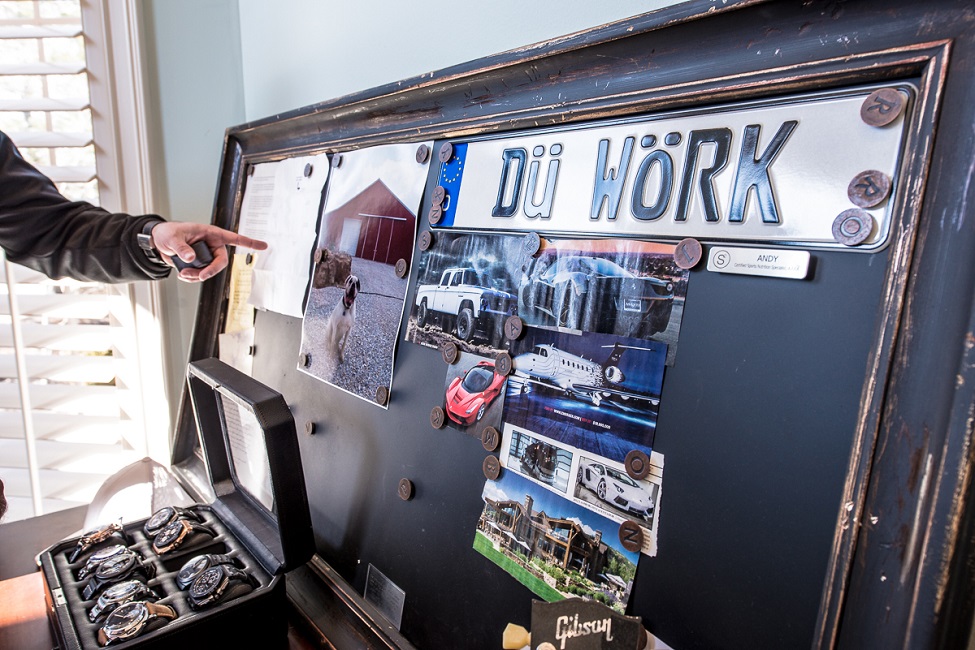 In my first three years, I didn’t get paid at all. My next three or four years, I made about $695 a month so I obviously had to get income from other places to be able to survive. The thing I had working in my favor was that we were so young that the things that we did would be like bartending and things like that where you could make a lot of cash and keep doing the business and growing it, but also be able to survive.
In my first three years, I didn’t get paid at all. My next three or four years, I made about $695 a month so I obviously had to get income from other places to be able to survive. The thing I had working in my favor was that we were so young that the things that we did would be like bartending and things like that where you could make a lot of cash and keep doing the business and growing it, but also be able to survive.
I think it’s harder for people who are older and have obligations, like family obligations, because they have a lot to pay for. We just didn’t have anything to pay for.
When we had one store, we didn’t make a lot of money, and when we got the second store, our brand became more aware and it actually helped the first store make more money. I feel like your best advertisement for your business is another location. So for us, when we had one store, it wasn’t really profitable but when we had two, it became a lot more profitable.
I know guys that have one or two stores that do really, really well. I’ve got a friend in New York who has a really, really, really profitable store. He’s got one store and he does a really good business. He built it off the same principles that we have in terms of just being good at creating those relationships and finding the early adopters, the people who could help spread the word in their communities to bring those customers in.
I don’t know how much you read but I’m a big Seth Godin fan. He’s got a book out called the Purple Cow. That was a book that I read that really changed my perspective on how word of mouth flows amongst the community and I think that when you’re really good at creating relationships, good at finding the early adaptors, and getting an understanding how word of mouth spreads, you can be very profitable in one location. Are you going to make $1 billion? No, but can you make a good living? Absolutely. It all depends on what your goals are.
Today, how expansive has Supplement Superstores grown to?
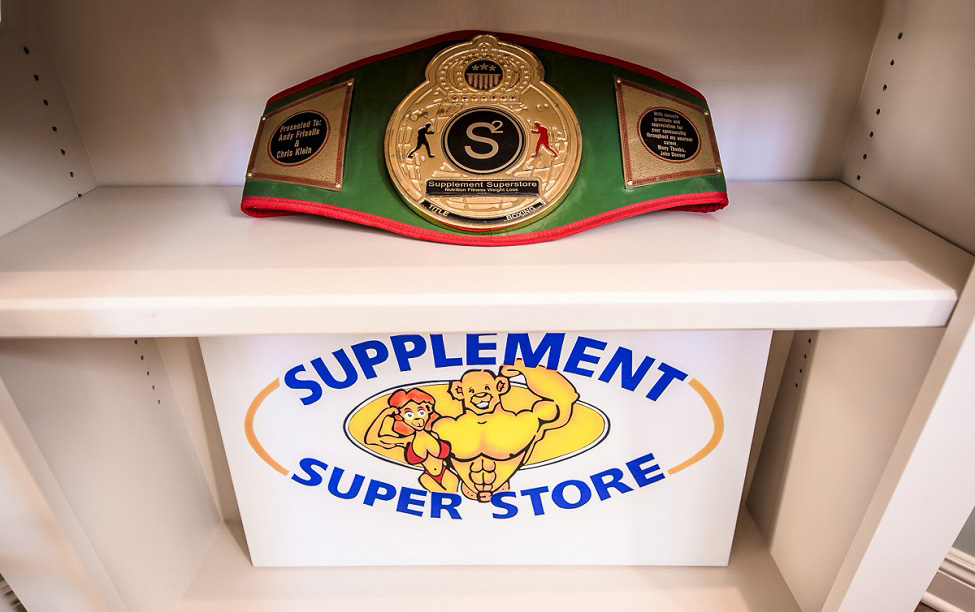
Right now, we’ve got 15 stores. We’re opening up eight more right now. All those stores are stores that we own ourselves and then we have three markets that we’re working on franchising right now with other groups. Potentially, if all three of those situations go through, it could be 60 – 70 stores by mid of 2016.
As an entrepreneur, you lead dozens, if not, hundreds of workers. Tell us about that experience.
If you want to be successful, you’ve got to be able to LEAD people. Period. You can’t do it on your own.
I have a couple of friends that do well without the support of a team or a network of people that work for them but it’s very rare. I feel like if you really want to become successful in business, you’ve got to become a good leader and a good manager. If you can’t develop those skills, you’re very limited to the success that you can have.
A lot of people think that managing people is just something that comes with being the boss, where you have people that work for you, just because they are getting paid. But if you want to create a very successful fast growing company, you’ve got to be able to get everybody paddling the boat in the same direction because they are passionate about it, not just because they are doing it for the paycheck.
I think becoming an effective manager has everything to do with building a great culture in your business. Those two go hand in hand. That’s something that you learn as you gain employees. We went from zero employees to two, to 16, to over 100 within a very short period of time. Managing that many people and developing a culture where you get that many people rowing the same direction, it was a challenge for me. I’m still learning about it every single day.
How have you developed your employees so they deliver the best experience possible?
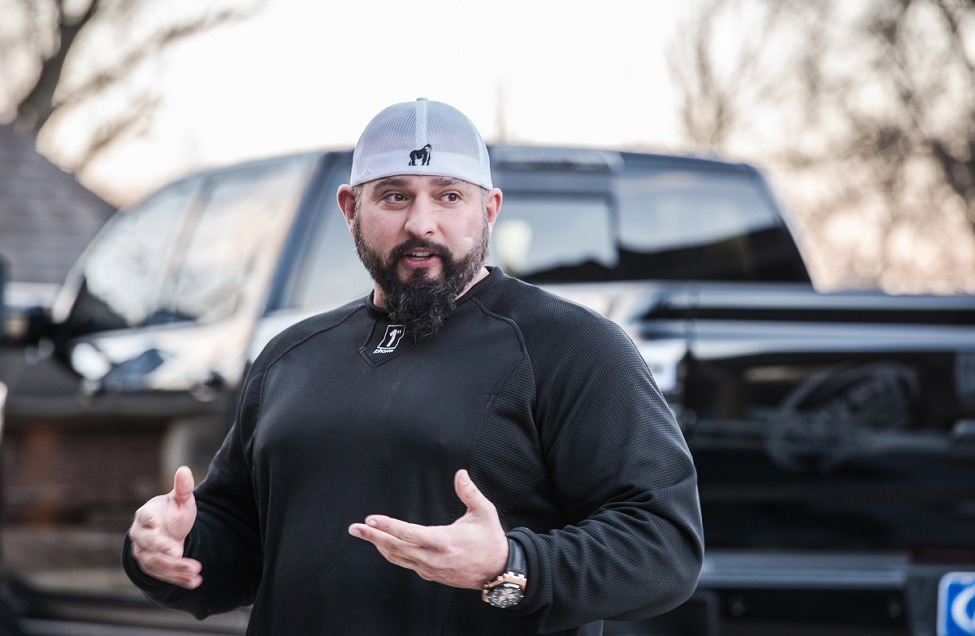 I’m a big reader so I read Delivering Happiness, by Tony Hsieh, the founder of Zappos. He’s pretty legendary in terms of building a culture. I read that book a couple of times and I took a lot of what they did and put it into our business.
I’m a big reader so I read Delivering Happiness, by Tony Hsieh, the founder of Zappos. He’s pretty legendary in terms of building a culture. I read that book a couple of times and I took a lot of what they did and put it into our business.
The main thing for us was that we started developing a focus not on performance of the business from a monetary aspect, but we started tracking performance in terms customer service metrics, and made little games and awards internally focused on service, not focused on how much you sell.
Because when we focus on service, the customer comes to us, they get what they want, they get the supplements they want, they get the program they want, and they get the help they need to get the result that they care about. If we could get our guys focused on being the best in that aspect, the monetary value naturally comes with that.
My main focus was to turn from how much are we selling to how many people are we helping. I think that’s where the culture went from one where we were constantly butting heads to where everybody can buy into it. It’s pretty easy to buy into a culture where you’re doing good things for people and I think that that’s where the turnaround started to happen for us.
Looking back what are some lessons you learned running Supplement Superstores?
What I realized is that nowadays, you go to Lowe’s or Home Depot, there might be one person working there and then you can self-checkout. If you go to the bank, it’s an ATM, it’s not a person anymore. It’s an email receipt. Everything is so automated now that people, especially the younger generation, has lost their ability to really communicate effectively.
I look at that as a massive opportunity to go back and bring a level of service our parents had where you would go into a store and they knew your name. They would shake your hand, they would carry your groceries out to your car for you, and we bring that aspect of service like handwritten thank you cards, things like that that people aren’t doing anymore.
 Instead of trying to evolve with technology and become more automated because it’s cheaper, we say, “Well, we’re going to actually do more work because it creates a better customer experience.” I think that was the key ‘aha’ moment that would benefit our growth in any business, whether we sell supplements or tires, it doesn’t matter. If you can master that, you could master business with whatever one you’re in because nobody wants to do it anymore because it’s too hard. Value is created in inefficiency because people appreciate the effort in the process.
Instead of trying to evolve with technology and become more automated because it’s cheaper, we say, “Well, we’re going to actually do more work because it creates a better customer experience.” I think that was the key ‘aha’ moment that would benefit our growth in any business, whether we sell supplements or tires, it doesn’t matter. If you can master that, you could master business with whatever one you’re in because nobody wants to do it anymore because it’s too hard. Value is created in inefficiency because people appreciate the effort in the process.
Where does 1st Phorm come into the picture of all this?
The supplement industry is really weird because in most businesses, like cars, the more expensive a thing is usually the best and people recognize that.
In the supplement industry, it seems like there’s a big race to the bottom and customers look at it and say, “Well, it’s all the same so the cheapest is the one I’m going to buy.” It become a perceived commodity marketplace because the barrier to entry is so small you have a lot of uneducated “snake oil” salesmen getting into the business because they “like to work out”… which is the equivalent of someone who likes to drink opening a bar.
 The idea that it’s a commodity marketplace and that cheapest is best is simply not true and that’s something that a lot of companies try to put out there because they are making an inferior product and want people to believe it’s good. Well, name me one thing in life that the cheapest is the best. Those two things never go together.
The idea that it’s a commodity marketplace and that cheapest is best is simply not true and that’s something that a lot of companies try to put out there because they are making an inferior product and want people to believe it’s good. Well, name me one thing in life that the cheapest is the best. Those two things never go together.
Chris and I had always talked about companies doing things the right way and it wasn’t happening in the stores so our dream was doing things the right way which is basically the idea of where 1st Phorm came from.
The right way in our business is doing things that use the proper raw ingredients, using application diagnosis, not doing all of the little label tricks that a lot of these companies do, and basically creating a quality product that may be more expensive, but it’s going to be the best product out there. We built our brand on the premium versus the shit you’re going to see in Costco or most supplement stores.
What is the significance of having Supplement Superstores as a distribution channel?
The stores allowed us to start so small on our production and distribute it within our own stores, that we were able to grow it organically from a financial aspect. We had to do it at our stores or it wouldn’t have worked.
We wholesale to hundreds of different accounts all over the country but we stayed out of GNC, Vitamin Shoppe, and a lot of the bigger stores as of right now because the idea of the brand for us was to create a brand that was not only high end, but also that the retailers could have as exclusive so that they could actually have an interest in selling it.
There’s more exclusive product lines. Back when we first started, there was no exclusivity in terms of product lines. It’s nice to see the industry maturing in that aspect.
We still select people by hand who we know understand where our brand fits in the scheme of things, they understand who our customers are, they understand how to sell the product, and what kind of people the products want to be sold to. Our brand is not for everyone and it takes really a strategic partnership at this point. We have been in contact with some of the bigger chains but at this point in time, it’s not something we’re really interested in doing.
What kind of investment is needed to start a new supplement line?
When we first started, we had a contract manufacturer but protein powder is very expensive because it’s expensive per unit and it’s expensive to ship. I think our first POs with our contract manufacturers for 1st Phorm were like $75,000 for just protein.
 In time, we eventually moved into our own production and now we’ve got our own plant. We do our own production now. We don’t use a contract manufacturer anymore.
In time, we eventually moved into our own production and now we’ve got our own plant. We do our own production now. We don’t use a contract manufacturer anymore.
Our first three products were just vanilla, chocolate, strawberry Level-1 (protein powder). Then we came out with three other flavors. Then we came out with a different kind of protein powder with two flavors and that worked into six flavors. Then we moved into encapsulated products.
We just extended the line over time to where now, our inventory would, at the beginning, it might have been $75,000. Now, we’ve got anywhere between $13-15 million in inventory right now.
With the success you’ve had with supplements, why not venture into the gym industry?
I’ve got friends that own different franchise models for gyms. One of my good friends, Todd Beckman just launched a franchise model for gym called Xist. He just sold 110 stores throughout Southern United States. I’ve got a couple of other friends up in Pennsylvania and they are getting ready to launch a gym concept.
My personal opinion on that is I want to focus on what I understand and what I’m good at and become very, very good at that. Instead of watering myself down with other projects I am not an expert in, I’d rather work synergistically with other people that maybe understand that business a little better than I would.
Have there been any challenges you’ve faced after the initial start up phases?
I tell entrepreneurs this all the time, I feel like it’s much, much harder in the beginning than it is now. Nowadays, our culture is established. Our systems are established. We understand exactly what we are doing and there are very few surprises.
Innovating new products and trying to come up with things that hadn’t been done before is probably the hardest part now but that pales in comparison to how hard it was because before, we were trying to get all these people to believe in us and see our vision and to move forward with that and that very difficult.
The hardest part now is a lot easier than the hardest part was 10 years ago. Everything is always a little bit easier when you have the capital. When you’re trying to do everything with no money, it can be very frustrating but that’s a necessary process of the success equation in my opinion because that’s where you could become resourceful and learn how to do things that you can be good at without money that actually benefits your business.
Tell us a little bit about the partnership and how you’ve made that work…
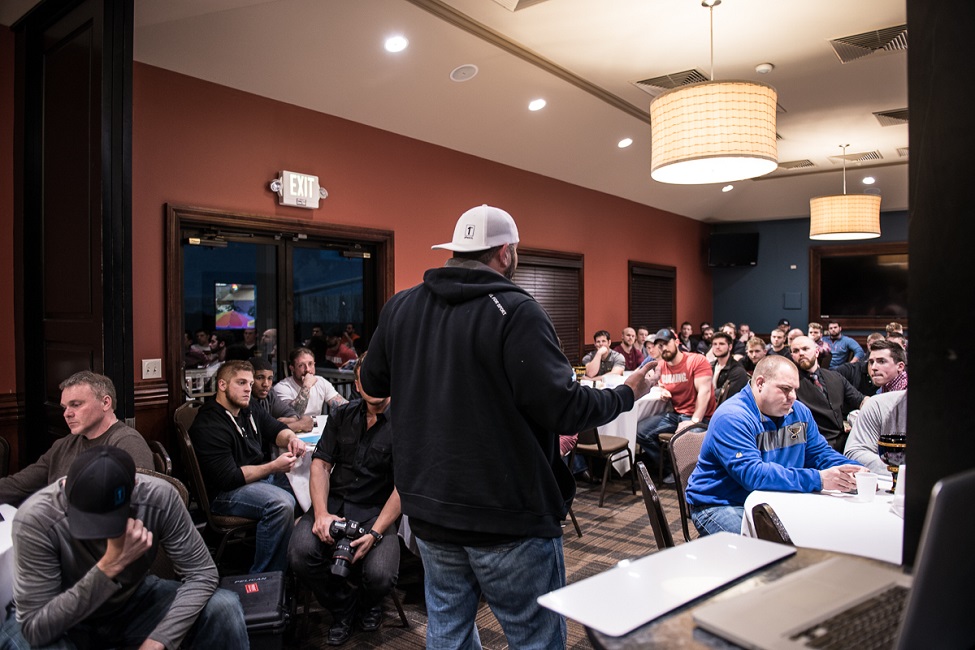 With Chris and I, our goals are so large for what we want to do that we both understand that while we have been semi-successful on a smaller scale in business, we really haven’t started to get where we wanted to be yet. We know there’s a long way to go and I think that helps keep everybody’s head in the game. I know it’s hard for a lot of people but for me in that aspect, it has been very easy because we have such an honest and real relationship.
With Chris and I, our goals are so large for what we want to do that we both understand that while we have been semi-successful on a smaller scale in business, we really haven’t started to get where we wanted to be yet. We know there’s a long way to go and I think that helps keep everybody’s head in the game. I know it’s hard for a lot of people but for me in that aspect, it has been very easy because we have such an honest and real relationship.
Chris and I have known each other for over 20 years and we’re just honest with each other and like brothers. We might get in a fist fight in the hallway but an hour later, we’re fine. The other thing is that both of us, as much as we like nice things and all that, they don’t really define us or make us who we are at all.
At the end of the day, we’re just a couple of country dudes that drive pickup trucks that have a business. We might like driving nice cars or wearing nice watches, but if that stuff goes, it’s not a big deal to us. It’s not what defines us at all. I just think trying to stay humble and remember where you came from really helps cultivate good partnerships in the long term.
I think one thing that helps our dynamic for sure is that Chris doesn’t like doing things that I like to do. I don’t like doing the things that he likes to do. He’s kind of like the computer guy, he’s a numbers guy, and he’s a guy who understands how to stay organized. I’m unorganized. I’m a big idea guy. I’m a dreamer. He doesn’t want to be in front of people. I like being in front of people. It kind of just naturally meshes for us to work together. He’s a saver. I’m a spender but it works. One thing we both share is our love of strategy. Our favorite saying in the office is “Chess, not Checkers” meaning that while everyone else is playing checkers and focusing on the next move… we need to keep our focus on the next ten moves and look where everyone else isn’t.
It’s a fun relationship. I think keeping it fun is one of the biggest things. It’s a weird thing, really. It’s kind of like being married or having a girlfriend. As long as the relationship is fun, it’s good. When it stops being fun, that’s when shit gets bad. We do a lot of messing around, a lot of goofing off here, but everybody has fun and I think that helps keep everybody sane.
What is one of your most memorable failure to date and the learning experience from it?
A lot of people say this but it’s true. I fail far more than I succeeded. All the way back to when I was 16 years old, I was trying to figure out money and failing businesses.
It was just a lot of little things and I was fortunate enough that I had a dad who was an entrepreneur as well and he was able to keep me in check in terms of how I looked at those failures. I never looked at those things as, “Wow, that’s a big failure. I really screwed up.” I look at those things as an investment in your education as an entrepreneur. When you make mistakes, they are going to cost you money especially in the beginning.
You are going to make mistakes and it could cost you a few $100s in the beginning and be the kind of thing that makes you upset for a month. I think the important thing to remember is that as long as you learn from those situations, learn from whatever mistake you made that cost you that money, it becomes a very valuable asset. That same $100 mistake in year one could save you 10 million in year 10 if you remember the lesson.
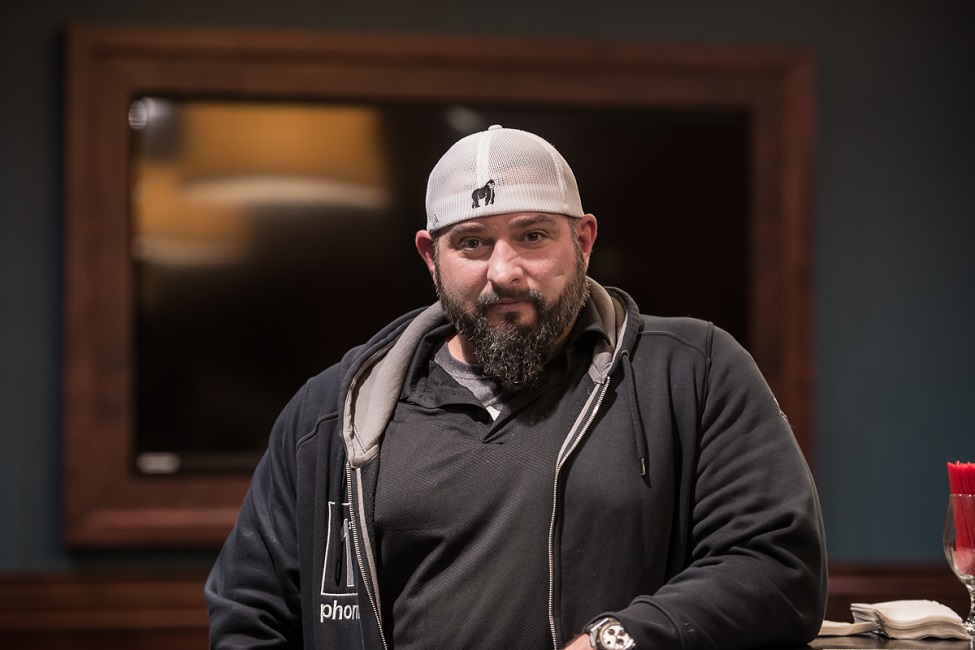 It also keeps you mentally in the right spot in terms of being positive because if you start to look at is as a lesson, then you could be happy about your failures as opposed to dwelling on them negatively.
It also keeps you mentally in the right spot in terms of being positive because if you start to look at is as a lesson, then you could be happy about your failures as opposed to dwelling on them negatively.
You’ve got to look at it as your education. I’ve made mistakes that have cost us, I can’t even tell you how much money. Millions of dollars and mistakes added up, but the reality is, I’ve got a PhD in entrepreneurship now. What would you rather have? Would you rather have those skills or would you rather be the guy who fails the first time and then lives the rest of his life with his tail between his legs?
Any last tips for any entrepreneur reading this?
I remember the first time I saw a Lamborghini. I could remember the first time I saw a Ferrari and I remember talking to my dad and said, “I want one of those.” My dad said, “Well, you better learn how to work.” That was when I was very young.
I learned very young, if you want to have nice things and you want to enjoy nice things in life, you’ve got to be successful. It was always a focus in my life but if I hadn’t seen those things growing up, who knows what road I would have went down.
 I feel its successful peoples duty to show the next generation what is actually possible. Honestly, I feel its every persons obligation to make the most of their opportunities… even though that mentality has gone by the way side, but that’s a different conversation.
I feel its successful peoples duty to show the next generation what is actually possible. Honestly, I feel its every persons obligation to make the most of their opportunities… even though that mentality has gone by the way side, but that’s a different conversation.
When you find some success, share your story. Don’t be afraid what people will say or think. I used to be very, very private about sharing pictures of my cars. I still don’t share very many pictures of my watches and stuff because I don’t want to come off as I’m just being very showy, but I always feel like that when I do those things and I tell a story with it, I think people can relate and it could help inspire them.
I think most people grow up with this mentality that success is like this magic thing that the magic success fairy flies down from the sky and taps certain people on the head and then they get to be successful. However, in reality, it has nothing to do with anything other than you just taking a step towards that goal every single day for a long period of time and if you’re someone intelligent, you’ll figure it out.
Cite: This listing/interview has been published by Secret Entourage — http://www.secretentourage.com/success-stories/secret-to-success-andy-frisella/


